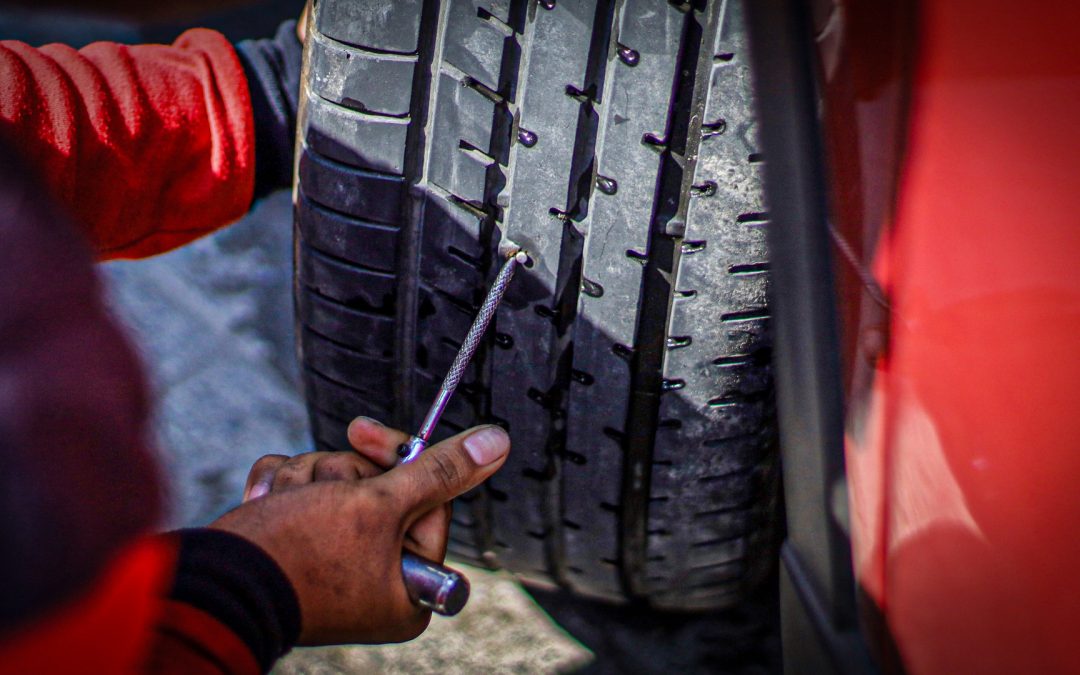Patching a punctured tire is a common job, but are you up to date on the latest guidance for safe plug locations?

I am a proficient mechanic.
I have long said my proficiency comes partially from skill, but mostly I’ve achieved good results due to my perseverance. I am generally unwilling to toss in the towel on something until it works correctly. “Too stupid to know when to quit” is an accusation that’s been leveled against me a time or two, and I have no defense. As I’ve gone down my own mechanical path, I have learned that sisu, as the Finns dub it, is a double-edged sword. Not knowing when to quit has hurt me—and helped me—financially. Have you had a similar experience?
When I first moved from the parts counter to the shop floor, I was paid hourly and not all that well. The lube rack seemed like a dead end, so I would specifically request odd duck jobs so I could learn things.
I loved taking on the used, off-make vehicles we would take in on trade and recondition for sale on our used lot, and I also caught a lot of wiring work because it generally pays terribly and flat-raters hated dealing with it. The shop foreman knew I rode motorcycles, so that work would sometimes come to me. I didn’t make a ton of money, but I became conditioned to repairs that took me a while, since they were the ones the flat-raters didn’t want to touch.

Photo: Mike Apice.
I had to try a lot of unconventional diag techniques because on some of these vehicles with a variety of worn-out parts, pinpointing the one acutely causing the problem wasn’t usually straightforward. On other vehicles I had to think for a bit if I didn’t have easy access to repair information. And on others, I just didn’t own or know about the proper equipment to diagnose something.
My successes stacked up, partly attributable to the sheer breadth of things I worked on and variety of failure modes I had witnessed. However, I often had to work for a long time to gain that knowledge. I learned that sticking with a job until it was fixed was the way to make sure when the car left, it stayed gone. It seemed like the right thing to do all the time. I began earning my stripes as a solid technician, but there was a downside.
I realized during my moonlight repairs I was taking a beating. I had been taking on a good amount of electrical work, but I didn’t seem to be getting very wealthy, in part because I wasn’t usually willing to stop fixing a car when the customer decided to stop paying. As you likely know, making electrical repairs is easy and fast. Finding out what repair needs to be made, however, can take a lot longer. I began charging straight hourly rate on electrical jobs. I did fewer of them, but the ones I did were much more profitable.
Then I moved to a shop that was understaffed, working as…well, as a little bit of everything. I helped run a shop with a colleague who was strong at writing service, so I split my time between the bay and the front counter.
In this environment, I had to fight the urge to take interesting jobs or ones I knew would pose a challenge. We were a tire dealer. A lot of my pay based on how many sets of shoes we could put on the horses. Despite my desires, I often spent lots of time on the tire machine and balancer. At the front counter, I learned to turn away things like intermittent electrical issues, internal transmission problems, and heavy driveline work like differential rebuilds. I pitched in where possible, but tenacity was not the name of the game here. Turning bays with quick, surefire repairs was much more important.

Photo: Mike Apice.
In fact, the two best techs in the shop worked as a team. One fella did all the diag work, and handed it off to the tech in the next bay to swap parts in and out. Both were lighting-fast. When I asked about this very unconventional setup, both men agreed getting mired in something that is too difficult netted them nothing but a smaller paycheck at the end of a week. Neither of them was interested in proving a point and fixing something come hell or high water. Both knew when to quit and tag in someone more skilled. That resonated with me.
When moonlighting, I was still getting a hefty dose of lengthy repairs that couldn’t be neatly summed up by the labor guide. Performance and antique work is largely trial and error. Tuning fuel delivery systems for modified vehicles, for instance, is a laborious process where each change must be isolated and tested independently. As such, it takes time. Assembling an engine with high-lift cams, higher compression pistons, different rocker ratios and rod lengths involves lots of mock-up work and machining and checking clearances. It can be repetitive and laborious. I learned custom work really needed to be billed at straight time, and customers seemed to expect that.
I realized my personal repair style—no compromises repair, no car left behind, no rushed work, all fruitcake vehicles welcome and even encouraged—isn’t even close to ideal in a flat-rate scenario. I don’t mean this to sound holier-than-thou. Instead it’s almost a warning: if you can’t rest without a job being just so, you may find yourself toiling fruitlessly. Your boss won’t like it, your customer won’t appreciate it, and you won’t be able to stand it. Perseverance can hurt you! My lack of wisdom is downright embarrassing when I think back on some of the times I couldn’t find a middle ground.
I did learn in time to modify my approach relative to my pay to some degree, and that helped. I also realized finding corners of the automotive world where customers would pay the premium I wanted for work I wanted to perform let me feel more fulfilled and ultimately more in-control. I learned that “fix everything no matter what” only works in some scenarios, and I hope a younger tech reads this and succeeds where I failed.
It may be a bit lofty for an auto repair blog, but I think in this case it makes sense to close with a quote from Winston Churchill. Most know the first part of the quote, but the back half is rather important. The emphasis added is mine. I’d encourage you to consider it.
“…never give in, never give in, never, never, never, never—in nothing, great or small, large or petty—never give in except to convictions of honor and good sense.”
Get in touch with convictions of good sense. It’s good for your wallet and your back.
The articles and other content contained on this site may contain links to third party websites. By clicking them, you consent to Dorman’s Website Use Agreement.
Participation in this forum is subject to Dorman’s Website Terms & Conditions. Please read our Comment Policy before commenting.